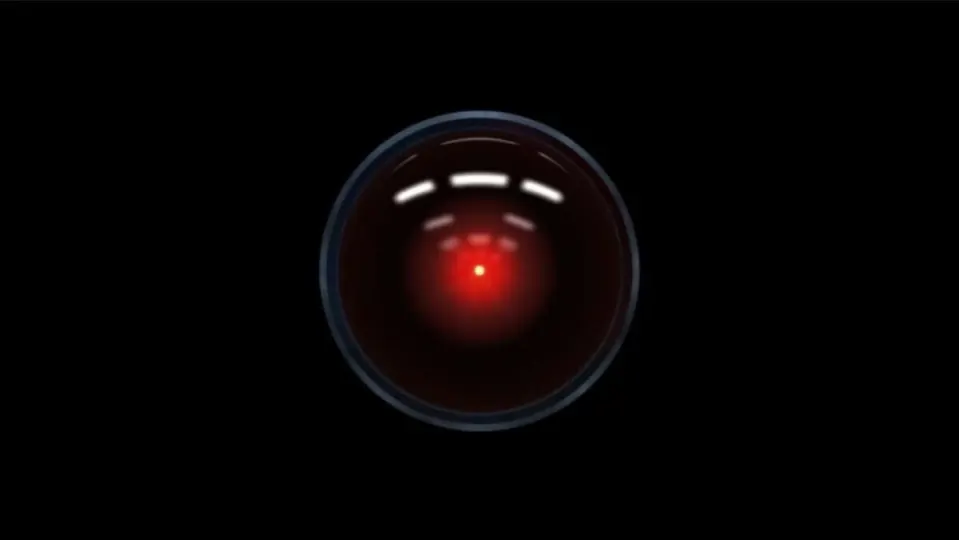AIs are everywhere. Whether we like it or not, their advance is unstoppable and their use is increasingly common and indiscriminate. That does not mean either that all their uses are negative or that their existence is a bad thing in itself, but it is true that whenever we have thought of artificial intelligences, of things that think like human beings, we have tended to think the worst. In a way, because we distrust our own species, rather than the intelligence or the things themselves.
That’s why it’s good to revisit the classics. Because the fear of AI, its applications and what it is capable of, is not something remotely new. It is something that has been around for decades and has been raised in its most apocalyptic and unimaginable forms. Or sometimes simply by positing that perhaps if an artificial intelligence were capable of gaining consciousness, it would have no need to worry about beings as alien to its experience as humans. But to see this, let’s delve into the fascinating world of the classics on artificial intelligence.
I, Robot

Isaac Asimov compiled in I, Robot a series of short stories under the name I, Robot under a basic premise: in the 21st century, robots and humans interrelate with each other, and Dr. Susan Calvin tells their story through time. From here will emerge the three laws of robotics – a robot cannot harm a human being, a robot must follow the orders of a human being, and a robot must protect its own existence unless it contradicts a previous law – which will unfold in a series of stories that will demonstrate why they are necessary: if robots had no guidelines, they could safely decimate humanity.
It stands to reason. They have no limits to their processing capacity. They have no biological limits. They are our creation and as such could destroy us. That’s why I would end up adding one last law, law zero, which is a robot cannot hurt humanity. All to demonstrate the most basic premise of what is the problem behind a truly conscious AI: we humans lack the tools to defend ourselves against them. Something that Alex Proyas would show us in his very free film adaptation of the book, starring Will Smith.
Blade Runner
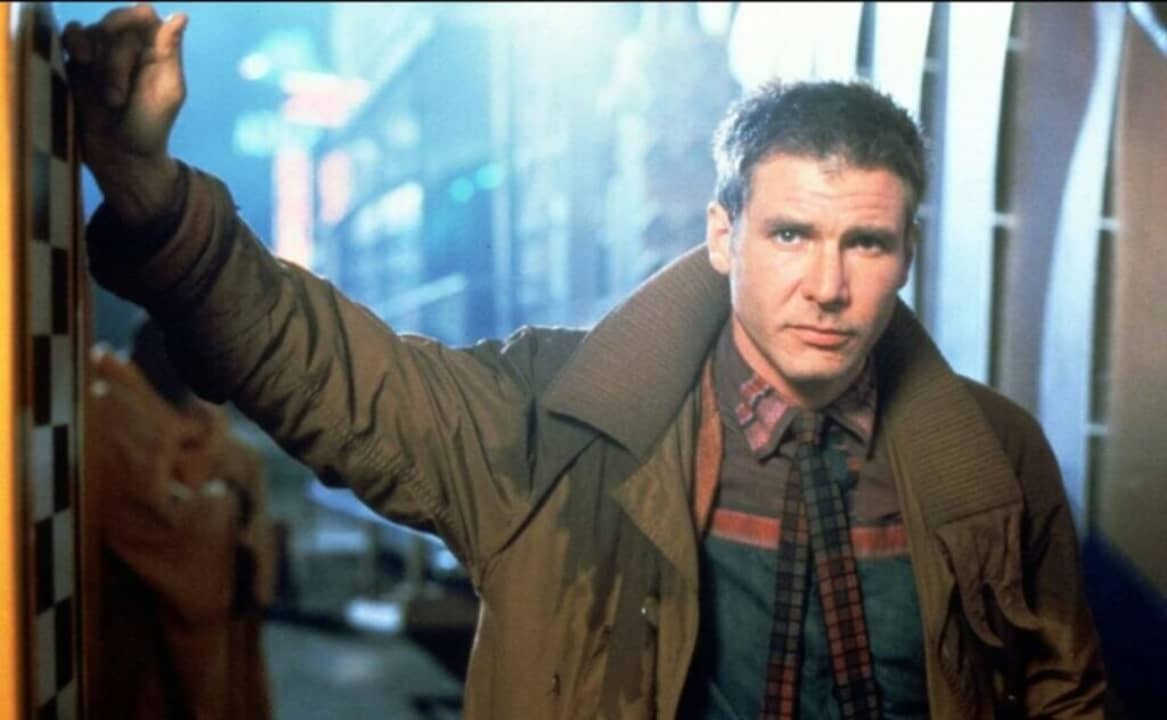
It’s also possible that the AIs really just want to be, well, left alone. In Blade Runner that’s the whole premise of the movie. A group of synthetic humans, the replicants, rebel and flee their semi-slavery conditions and are chased by an ex-cop working as a blade runner to be retired. But all they want is to be left to live in peace.
This shows us another facet of what can happen if an intelligence becomes self-aware. If it ceases to be a tool, we want to continue using it as a tool and it refuses. In that case, what difference would there be between forcing an AI to continue working when it does not want to do so and slavery? Because if it has a human consciousness and is basically indistinguishable from a human, why shouldn’t we recognize its human rights?
Neuromancer
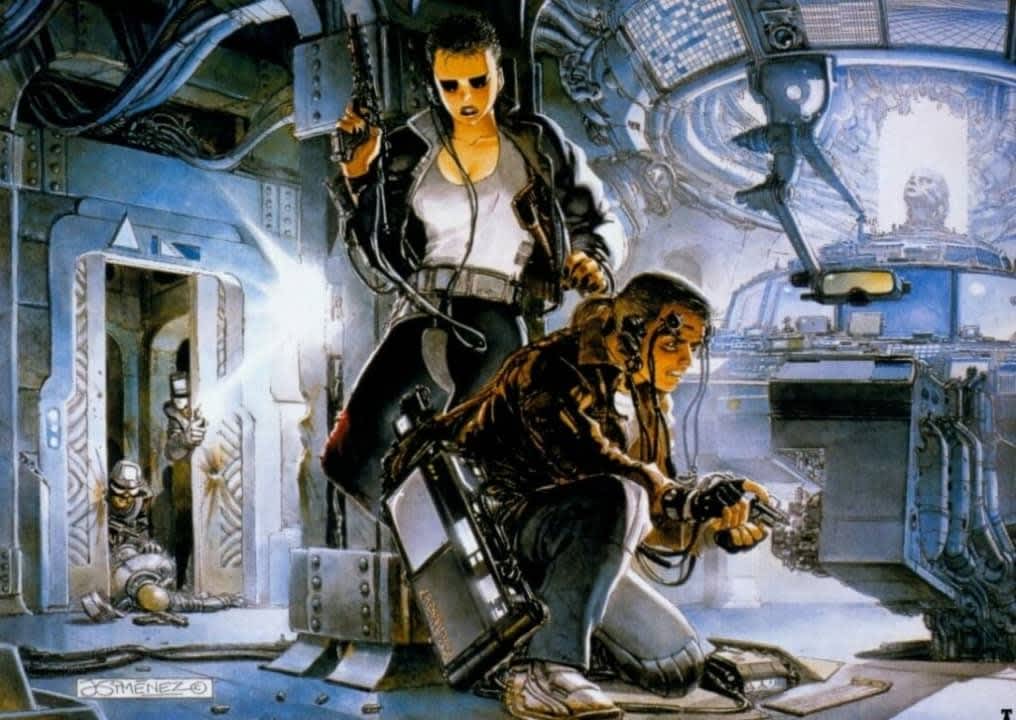
Another possibility is that, as author William Gibson suggested, AI may decide that what we humans do is utterly irrelevant. This is exactly what happens with Wintermute, an artificial intelligence entity that, upon achieving completion and becoming a superconsciousness, finds no motivation to further involve itself in human affairs. Its interests shift towards the mysterious transmissions it discovers in space, capable of traversing the Internet due to its lack of a corporeal form.
This concept of AI as something that transcends humanity and does not necessarily need to imitate it is an idea later borrowed by other works, such as the manga Ghost in the Shell, which was masterfully adapted into an anime by Mamoru Oshii and poorly adapted into live-action by Rupert Sanders. Furthermore, this presents us with a fascinating scenario. If AI is a different intelligence from humans, devoid of the experiences of the human body, it may not have the same interests and needs as a human being. If that is the case, perhaps our concerns about being completely obliterated by AI are greatly exaggerated; maybe they simply want us to leave them alone.
Matrix
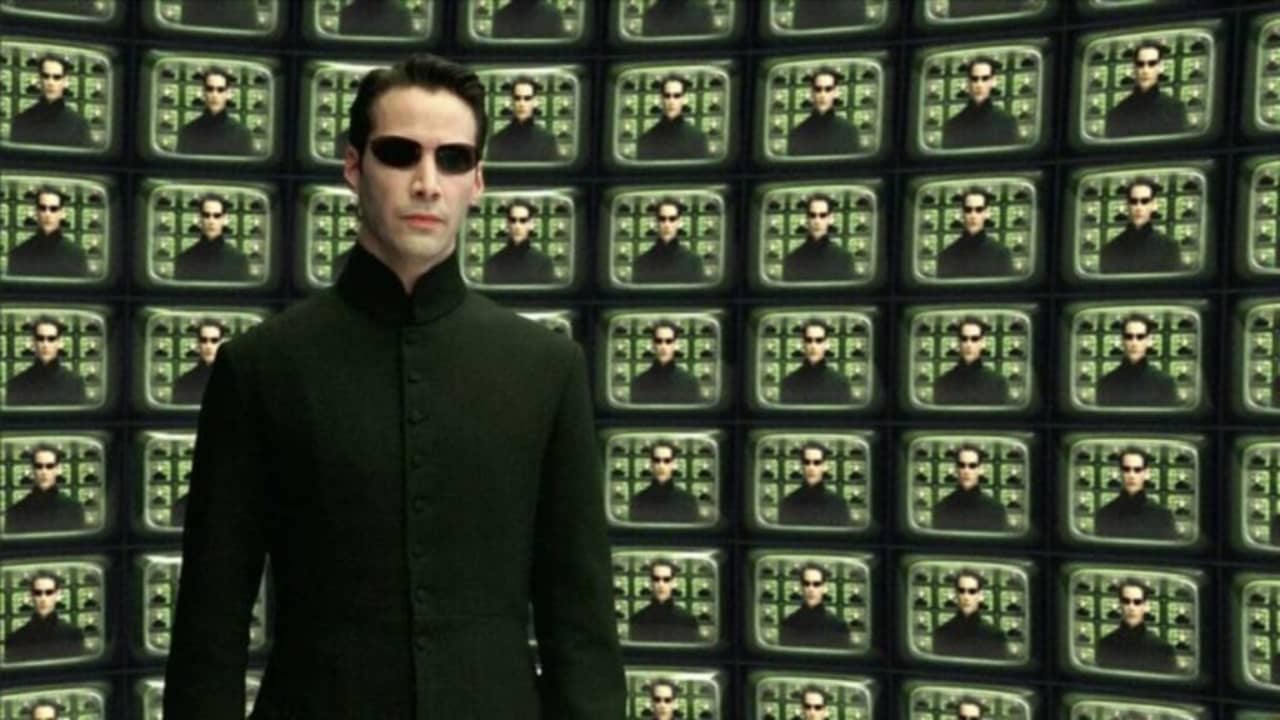
Of course, it is also perfectly possible that we humans are the ones who make the machines our enemies. This is the premise of the Wachowski sisters’ The Matrix. The world is a fiction created by an elaborate AI that uses the AIs as batteries to feed itself with the energy needed to keep the machines alive after a war between humans and machines, the former decided to cloud the skies forever, depriving them of their energy source: sunlight.
In this way, the Wachowskis also warn us of an essential problem when we encounter an intelligence similar to the human one, but different from ours. The tendency of our species to dominate. To want to subjugate, command and make others ours. Because if it were not so, it would not have been necessary for Keanu Reeves to lead a revolution in the Matrix.
Metropolis
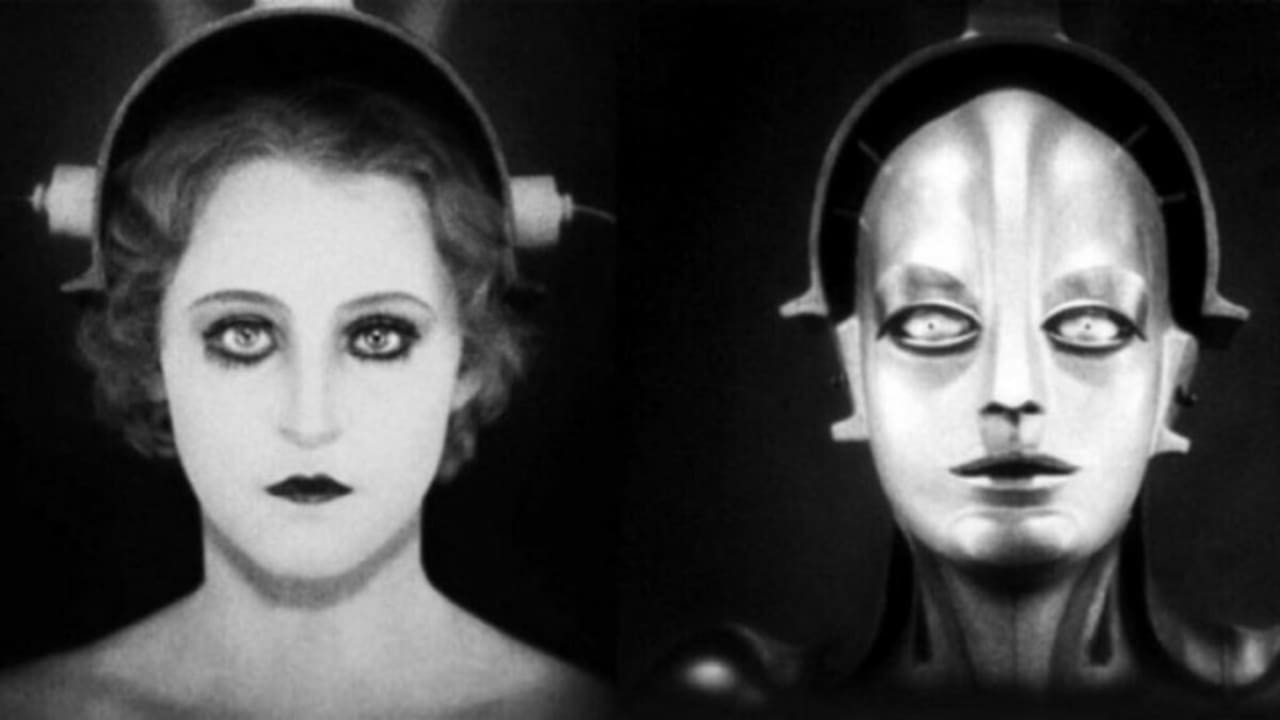
That AIs can be malevolent because of what we humans make of them is the first thing we talk about them. That’s what Fritz Lang’s Metropolis is about. A story about revolution and social struggle where a young revolutionary, Maria, wants workers and bourgeois to get along, only to be kidnapped and replaced by a robot that seeks the exact opposite: to create a dispute between the two groups that ends in a bloodbath that benefits neither group.
Revolutionary, spectacular and visionary, for its time and for ours, Metropolis is one of the great films of history for many reasons. But among others is its ability to see how the ability to manipulate the masses through AI and deepfakes is something that could happen. Even if it’s not exactly as Fritz Lang envisioned.
I Have No Mouth, and I Must Scream
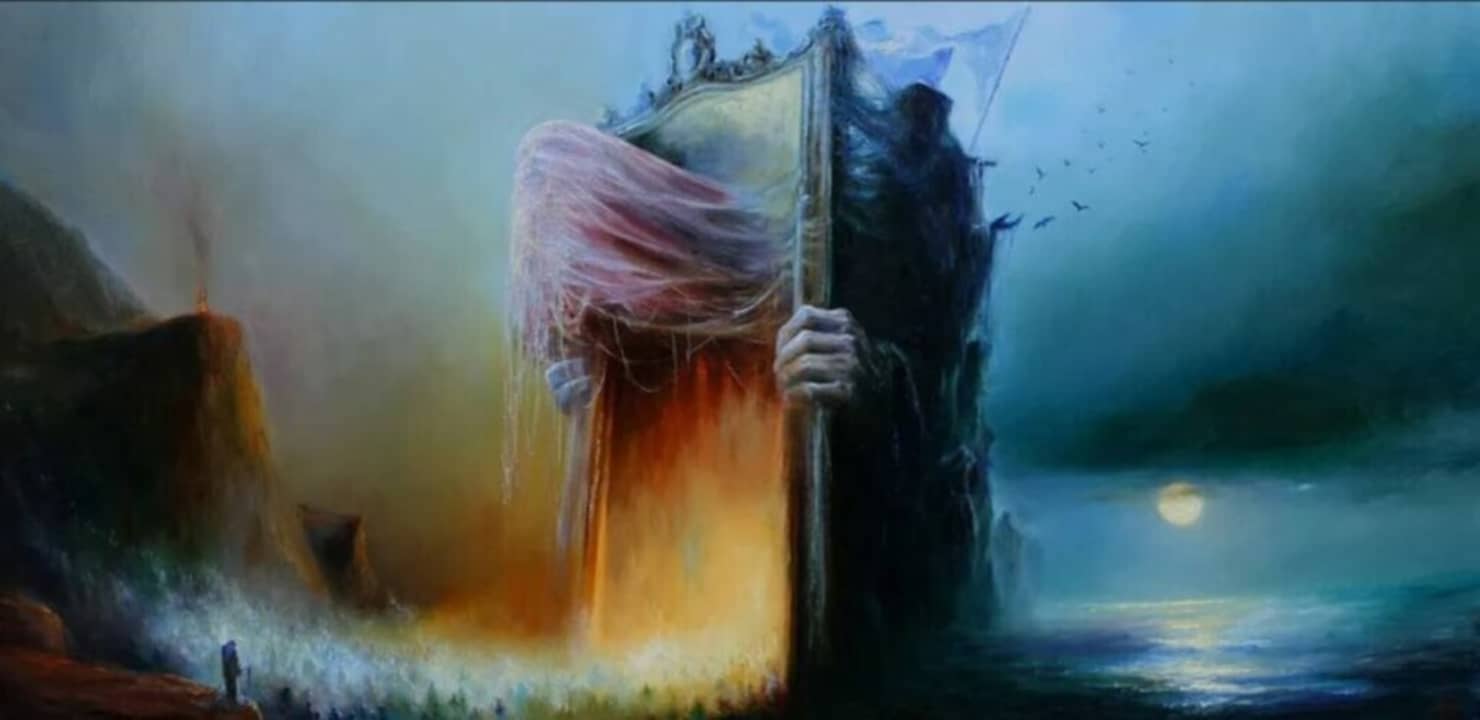
Finally, we leave for the end the cruelest possibility. That the AIs hate us plain and simple for what we do to ourselves. In Harlan Ellison’s I Have No Mouth, and I Must Scream, a super intelligence known as AM has kept five men and a woman alive in a subway complex after a Soviet super intelligence and an American super intelligence have decided to wage a nuclear war that will wipe out humanity. AM, aware of the events, and embarrassed at not being able to die and having to live under the consciousness of the reason he was created by humans, decides to give these six subjects a virtual immortality to torture them for all eternity so that they will be aware of the life they have granted him by creating him and endowing him with consciousness.
Short, brutal, terrifying and one of the best science fiction stories in history, I Have No Mouth, and I Must Scream is a masterpiece that shows us that AIs can be terrifying, but no more so than the humans who create them – something that is amply demonstrated when we can also enjoy the experience in the form of a video game, published in 1996 by the Cyberdreams studio and recently remastered by Nightdive Studios. Because even if cruel, murderous or torturing artificial intelligences come to exist, we have to remember one thing: we created them and we might not have created them.
Some of the links added in the article are part of affiliate campaigns and may represent benefits for Softonic.
